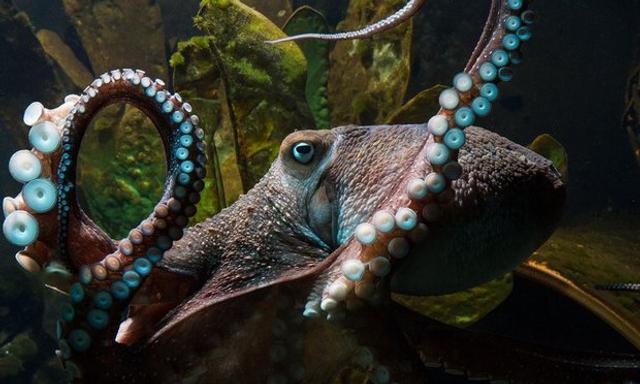If it means dancing really energetically to music you'd need to be high to enjoy, or thinking everyone should just hug one another for five minutes, it's not that precise - but it's not that far off, either.
As a general rule, the octopus is known as a solitary and asocial creature whose brain functions developed completely independently from humans. It's often said that the closest thing we have to an alien lifeform - one unlike any other on the planet - is the octopus. Yet, for all the mystery around them, researchers Gül Dölen and her colleague Eric Edsinger have discovered that they're not that similar to us once they're rolling on molly.
Seven octopuses / octopodes / octopi were given a bath containing elements of MDMA in order to test if they become more sociable and friendly once the drug had attached itself to the serotonin receptor proteins in the brain and change the way its transported around the brain. For humans, it gives us a warm and fuzzy feeling that makes either want to constantly chew on something or feel really, really good about the world.
For the octopus, it's quite similar. Researchers found that they became more exploratory, social and friendly when given MDMA. After taking the drug via a water solution in a bath, the octopus is then taken to a room with three doors - one containing a male octopus, a central room, and one containing a toy. Before MDMA, the octopus almost always chose the one without the male octopus - yet with MDMA, the exact opposite happened and the two octopuses / octopodes / octopi played with one another whilst on MDMA.
This essentially means that even though our brains are vastly different to the octopus, the drug has the exact same effect on them as it does on us. Incidentally, whilst speaking to Gizmodo about the study, Gül Dölen also pointed out anecdotally that the effects of too much MDMA on the octopus had a similar human effect as well.
After receiving too much MDMA, one octopus turned white and stayed in a corner, another began dancing erratically like it was doing "water ballet", and another seemed "especially interested in minor sounds and spells."
You can read the full interview and details here.








































































